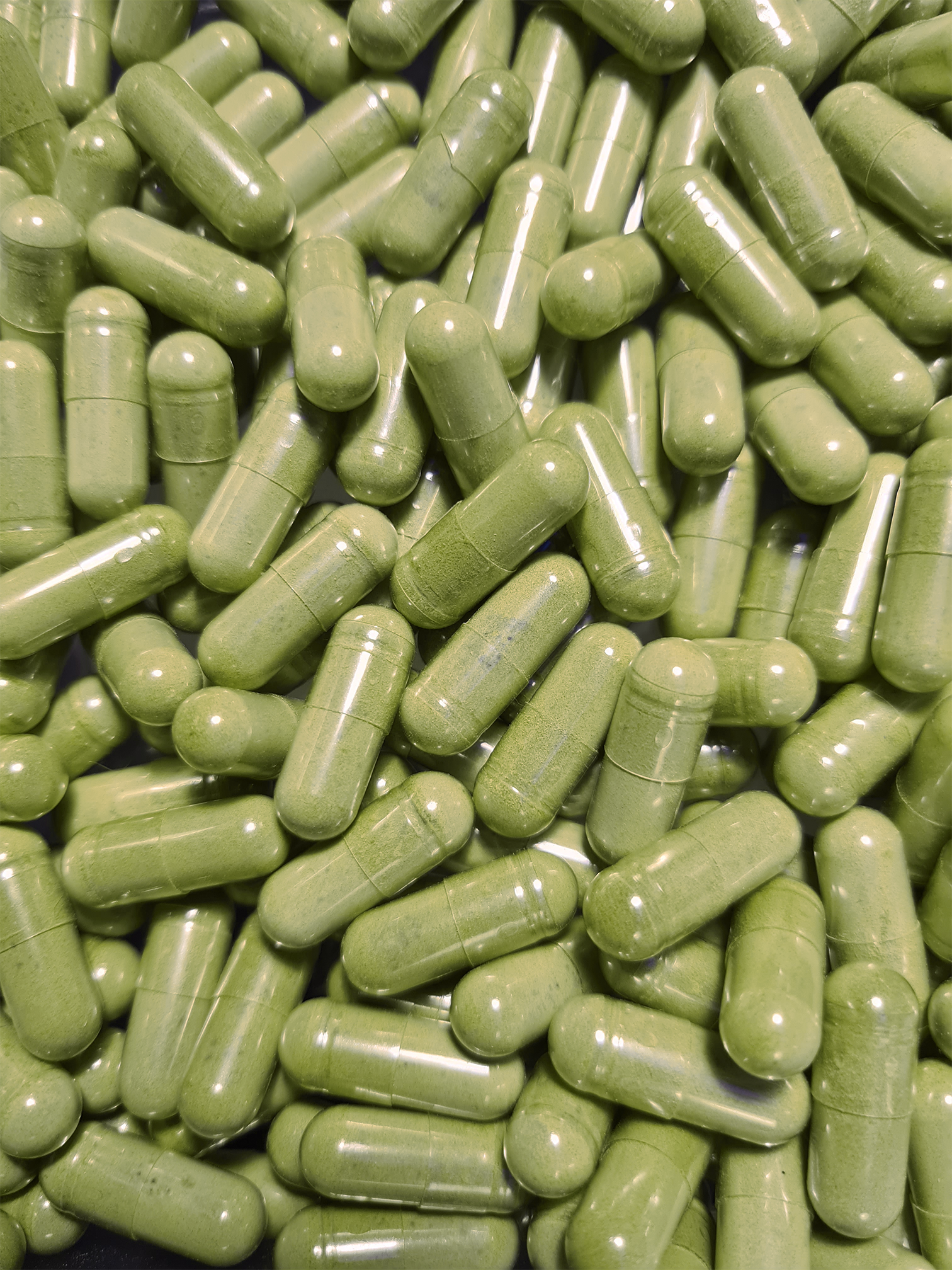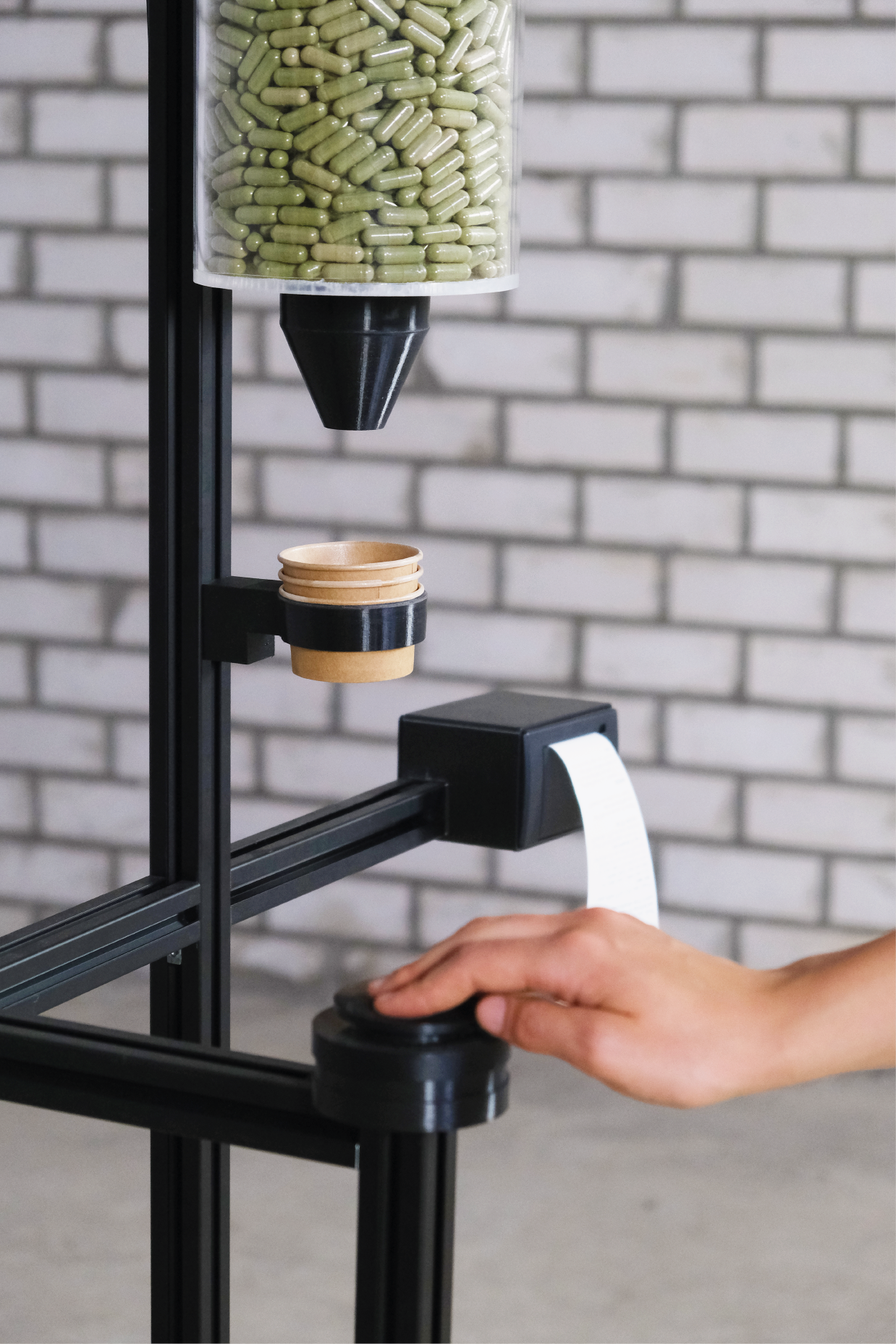APATITE
02-2022

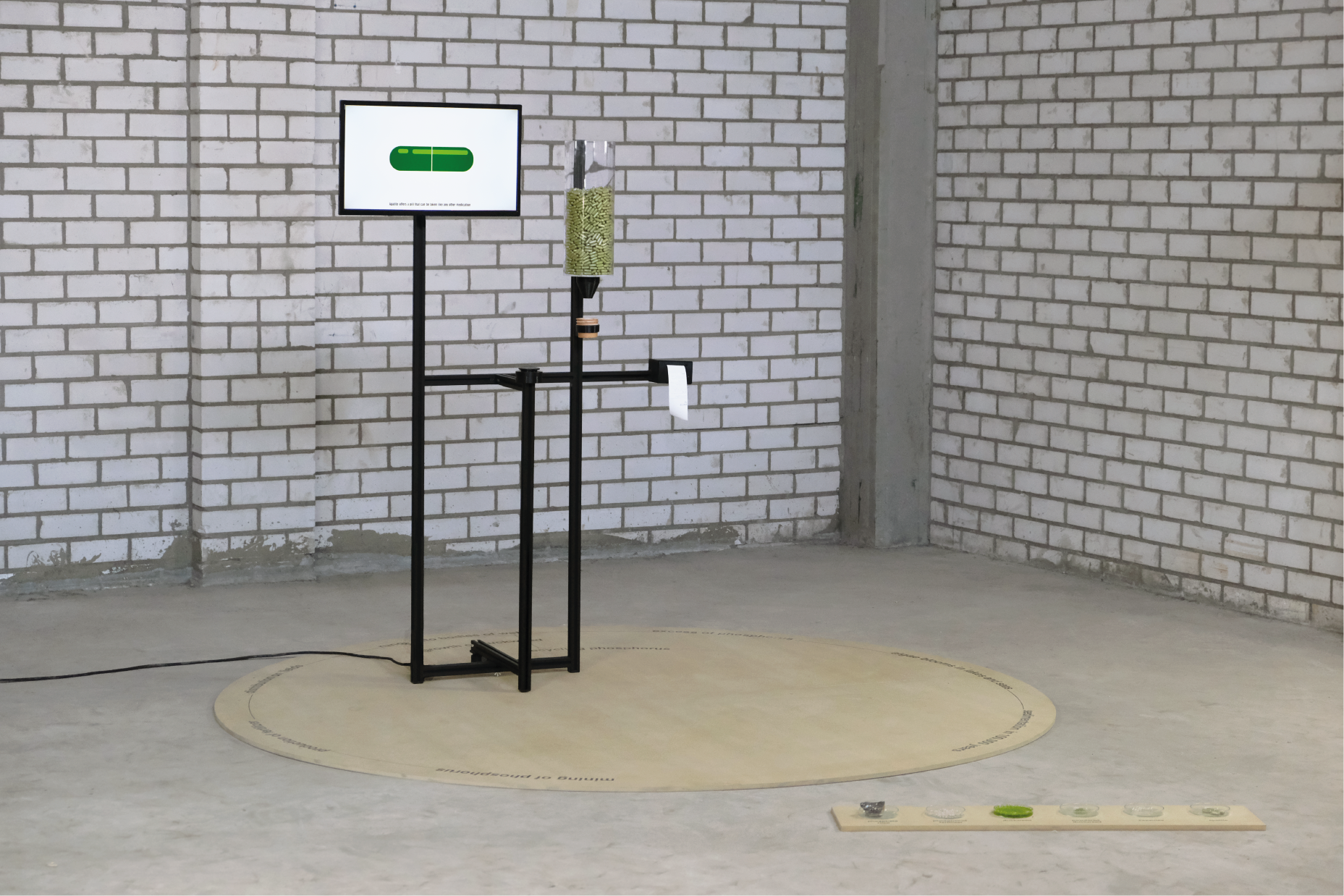
In 100-300 years, the world will have reached "peak
phosphorus". We will have mined every ounce of the phosphate mineral
"apatite" by then. Phosphorus is an irreplaceable and essential
fertiliser for industrial agriculture. Without it, plants cannot grow. You
could say the agricultural industry has an appetite for apatite.
Runoff from agricultural land contains high levels of this fertilizer, disrupting surrounding aquatic ecosystems and causing algal blooms. We need to reclaim this finite resource and reduce the amount of phosphorus in our waters. Fortunately, some of the infrastructure is already in place.
Runoff from agricultural land contains high levels of this fertilizer, disrupting surrounding aquatic ecosystems and causing algal blooms. We need to reclaim this finite resource and reduce the amount of phosphorus in our waters. Fortunately, some of the infrastructure is already in place.

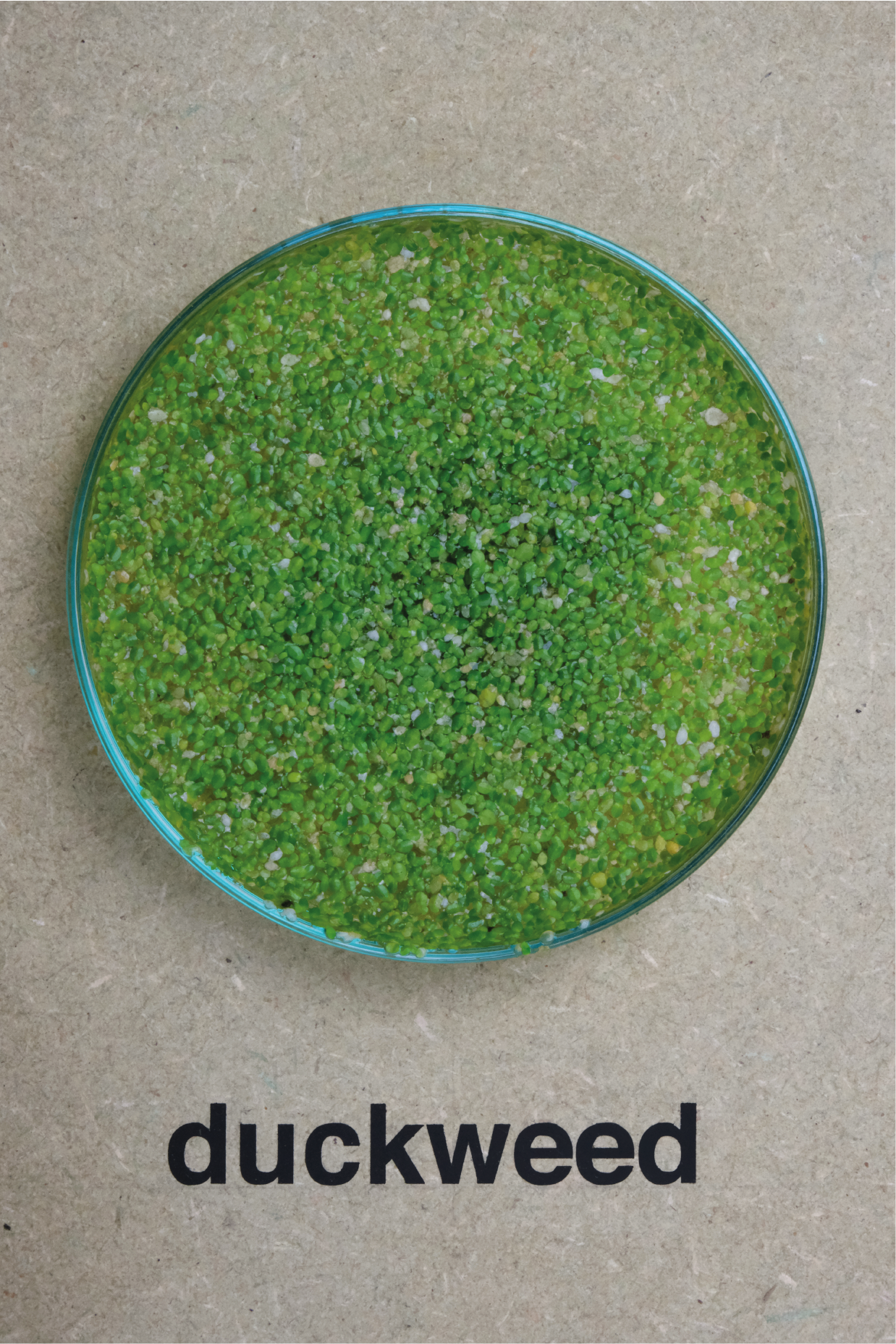
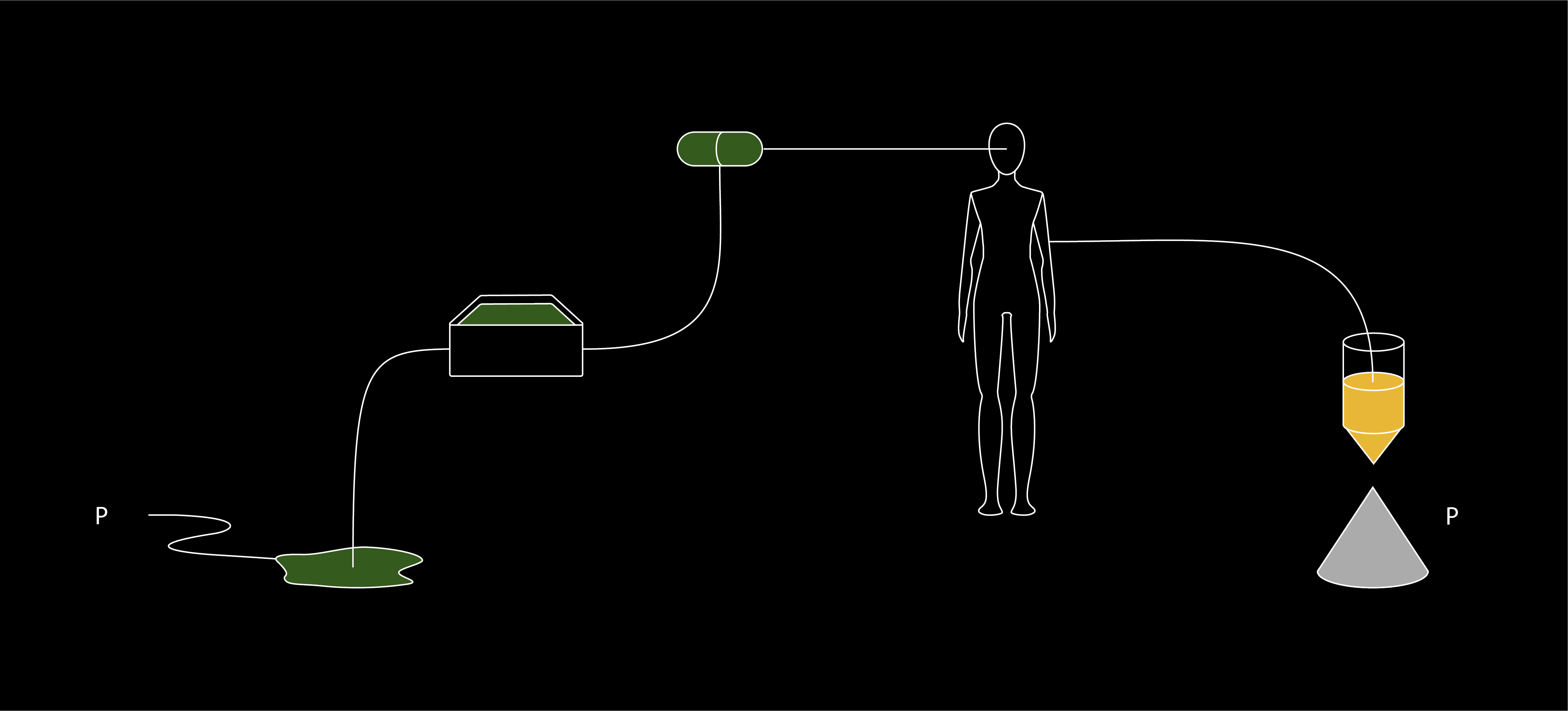
Apatite" imagines the
human body as a perfect phosphorus-collecting machine. Its fuel: duckweed, and
its tools: sewage treatment plants. Duckweed grows on nutrient-rich water and
is excellent at binding phosphorus. It is also edible for humans. Apatite
offers a pill made from duckweed that can be taken like any other pill. But
unlike medicine, taking the Apatite pill does not heal our body but our ecosystem.
The human digestive tract breaks down duckweed and releases phosphorus in the process. The phosphorus enters our sewage treatment plants via our sewage system. In the Netherlands, sewage treatment plants have developed systems that filter and recycle the phosphorus from the water. By connecting our bodies to the existing wastewater infrastructure, we can recover valuable resources and restore ecosystems. Because once phosphate is in the ocean, it is lost forever. By taking a duckweed pill, you are helping to remove phosphorus from our waters because the world's health is at stake.
The human digestive tract breaks down duckweed and releases phosphorus in the process. The phosphorus enters our sewage treatment plants via our sewage system. In the Netherlands, sewage treatment plants have developed systems that filter and recycle the phosphorus from the water. By connecting our bodies to the existing wastewater infrastructure, we can recover valuable resources and restore ecosystems. Because once phosphate is in the ocean, it is lost forever. By taking a duckweed pill, you are helping to remove phosphorus from our waters because the world's health is at stake.
